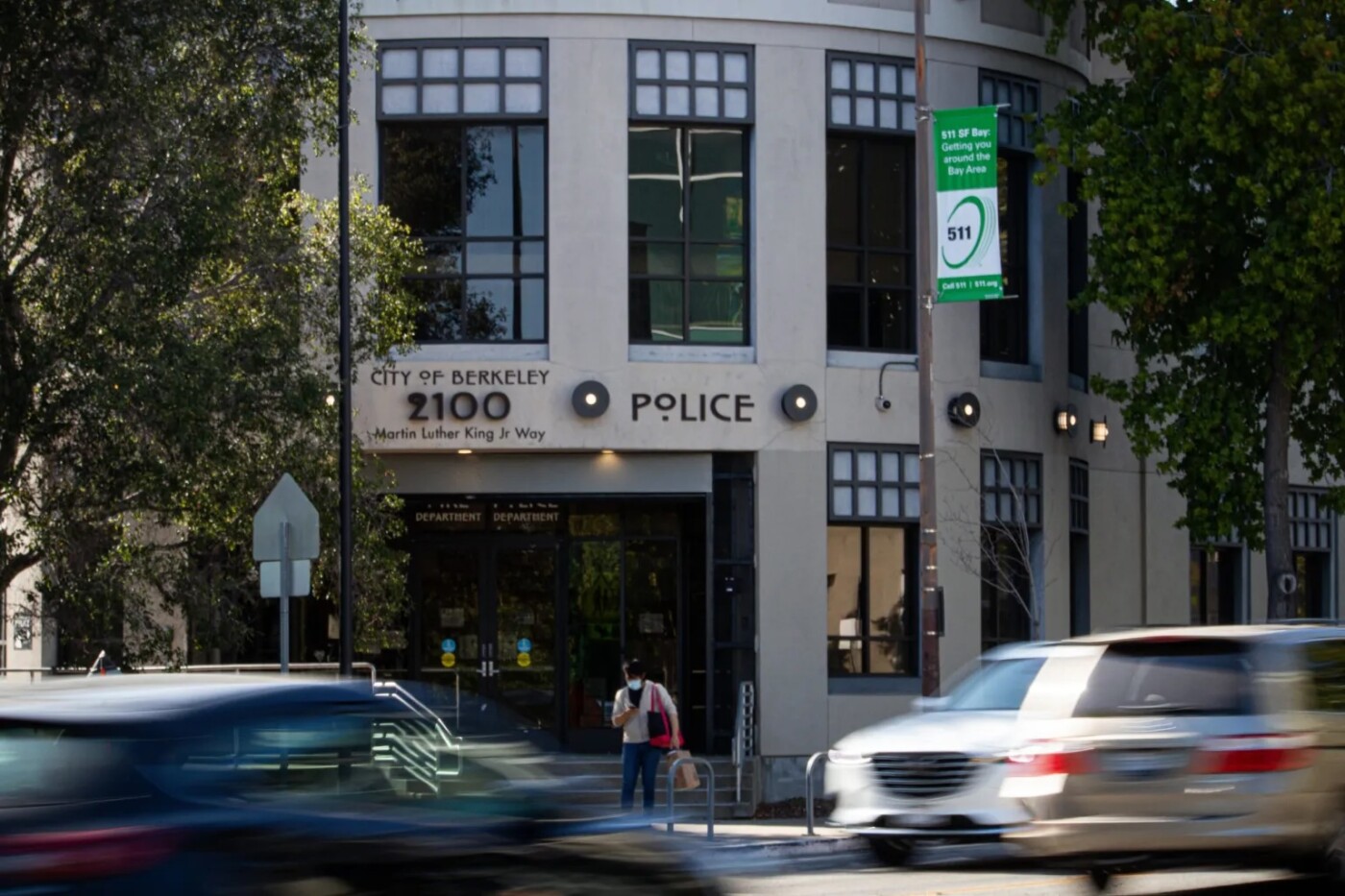THE BERKELEY CITY COUNCIL voted 8-1 this week to restrict public access to the police department’s real-time dispatch radio traffic.
The move to encrypt radio communications was influenced by similar decisions by all other law enforcement agencies in Alameda County, several councilmembers said during the meeting.
Law enforcement agencies across the state are moving to restrict public access to dispatch transmissions to comply with a memo issued by Attorney General Rob Bonta in 2020 that said the real-time public broadcasts were putting victims at risk by revealing identifying or sensitive information about them. The memo instructed agencies to protect such information in line with changes in state law, but left leeway on how agencies would comply.
The Berkeley Police Department is developing an online call log that will provide a delayed list of calls police respond to that will give the media and public some information about police responses. The delay was still undefined, but will be less than 30 minutes, according to Arlo Malmberg, a BPD Strategic Planning and Accountability Manager.
The call log would be supplemented by social media postings, press releases, and expanded use of the digital alert system Nixle, which is currently primarily used for missing persons and road closure notifications.
The Berkeley Fire Department’s dispatch traffic will remain unencrypted and accessible to the public, including conversations with the police department during joint responses.
The approval came despite more than two dozen public commenters who objected to the proposal as well as the process of how it was placed on the City Council’s consent calendar, which is a list of agenda items approved all at once without discussion on each.
Councilmembers agreed at the start of the meeting to move the item from the consent calendar to the action calendar to allow Berkeley Police Chief Jennifer Louis to provide more information about the proposed transition, which she said was meant to comply with the state’s mandate as well as prevent criminals from listening to police traffic to help them plan or get away with crimes, or endangering the safety of police officers.
Louis told councilmembers that alternatives to encryption had been explored but deemed inadequate. She said putting a delay on the radio feed or offering credentialed media access to the encrypted channel through a “key” would not protect victims’ sensitive identifying information, as Bonta’s memo requires.
There are already additional radio channels that officers and dispatchers can use for encrypted communications for privacy or special operations, such as those involving SWAT teams. But Louis said maintaining those was not feasible as an alternative because of staffing shortages and because she said it was better to have all responders on the same channel.
Moving the agenda item from the consent to the action calendar also allowed more than two dozen members of the public to criticize the plan, arguing that live radio traffic was a valuable tool for the media to report on breaking public safety news and for the public to provide police accountability.
Several also tore into the City Council because the agenda item never went through the Public Safety Committee or any other committee, and because nobody from the Police Accountability Board was present. Many of the commenters who objected to the speed and process of the change urged the City Council to delay the item and send it through a more rigorous process, while others urged it to abandon the idea, citing the Palo Alto Police Department’s move back to open channels after making its communications encrypted from 2021-2022.
The Palo Alto Police Department said in its 2022 press release announcing the reversal that newer technology had made it possible to move more easily between open channels and those needed for privacy or special operations.
‘We speak for those who can’t speak’
Andrea Prichett, who co-founded the advocacy organization Berkeley Copwatch 35 years ago and is a former member of the city’s Police Review Commission, blasted the proposal in her public comments to the Council and said it would take away a tool the organization regularly used to monitor police responses and advocate for vulnerable people who had little protection against civil rights violations.
“Under the proposed system that the chief has offered, we will merely be analyzing statistics,” she said. “Yes, we listen to the scanner. We go there. We document. Ask the — ask the Police Accountability Board, that isn’t here for some unknown reason — how many complaints come from us? Because we speak for those who can’t speak,” she told councilmembers.
City Councilmember Cecilia Lunaparra praised Louis for her willingness to make changes to the police department’s initial plan to increase transparency through the live online log and said the police chief had listened and responded to concerns Lunaparra had raised. But she ultimately was the lone “no” vote, citing the many commenters present and online who had ongoing concerns about the change and objections to the process.
Other councilmembers said the state and county were forcing the city’s hand and did not want to be the only jurisdiction in Alameda County without encrypted radio traffic because they said it could make the city a target for criminals.
After the vote, Prichett yelled out in objection, telling the City Council they had “washed their hands” of a change that would decrease transparency and accused them of “burying their heads in the sand.”
The post Berkeley City Council votes to encrypt police radio communications, drawing public outcry appeared first on Local News Matters.
